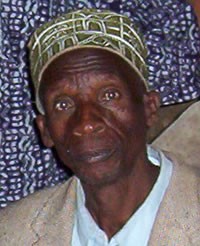Rangi in Tanzania

Photo Source:
Oliver Stegen
|
Send Joshua Project a map of this people group.
|
| People Name: | Rangi |
| Country: | Tanzania |
| 10/40 Window: | No |
| Population: | 803,000 |
| World Population: | 803,000 |
| Primary Language: | Rangi |
| Primary Religion: | Islam |
| Christian Adherents: | 20.00 % |
| Evangelicals: | 7.00 % |
| Scripture: | New Testament |
| Ministry Resources: | Yes |
| Jesus Film: | Yes |
| Audio Recordings: | Yes |
| People Cluster: | Bantu, Central-Tanzania |
| Affinity Bloc: | Sub-Saharan Peoples |
| Progress Level: |
|
Introduction / History
The Rangi are a Bantu ethnic group living in central Tanzania, primarily in the Dodoma Region. They are part of the Central-Tanzania Bantu people cluster within the Sub-Saharan African affinity bloc. Known for their agricultural expertise and strong cultural identity, the Rangi have long inhabited the semi-arid highlands of central Tanzania, where they maintain deep ties to their land and traditions.Cushitic neighboring languages have influenced their language due to historical interactions with groups such as the Burunge and Iraqw. The Rangi trace their origins to migrations from the north and west, eventually settling in the Dodoma area. Over time, they developed their own oral tradition, clan-based governance, and agricultural systems adapted to the dry climate. Despite external influences, the Rangi have preserved their language and cultural practices.
What Are Their Lives Like?
Rangi communities are primarily agrarian, cultivating crops such as millet, sorghum, maize, and sunflowers. They also raise livestock, including goats and cattle. Farming is often conducted using traditional methods that are well-suited to the region's dry conditions. Social life revolves around extended families and clan affiliations, with elders playing key roles in leadership and conflict resolution. While Dodoma has grown into a political and administrative center, many Rangi villages remain rural and face challenges related to education, healthcare, and infrastructure.
What Are Their Beliefs?
Islam is the dominant religion among the Rangi, with Sunni practices deeply embedded in daily life. The spread of Islam among the Rangi dates back several centuries through trade and cultural exchange. Traditional beliefs, including ancestor veneration and nature-based rituals, still persist, especially in remote areas. Christianity is present but remains a minority faith, with evangelical outreach facing linguistic and cultural barriers. Syncretism is common, and spiritual practices often reflect a blend of Islamic and indigenous beliefs.
What Are Their Needs?
The Rangi need access to culturally sensitive gospel outreach that respects their Islamic background while clearly presenting the message of Christ. Although Bible translations and gospel recordings are available, there is a lack of trained local Christian leaders to disciple new believers. Evangelism efforts must navigate deep-rooted Islamic traditions and syncretic practices. Holistic development—such as education, healthcare, and clean water—can help build trust and open doors for spiritual engagement.
Prayer Points
Pray for the strengthening of gospel outreach efforts among the Rangi, especially in rural Dodoma communities.Ask God to raise up culturally sensitive and bold Rangi believers who can open the hearts of Rangi Muslims to the truth of Christ.Pray for the Lord to equip and send out hundreds of Rangi Christian workers to tell of the Lord's mercy, love, and power to their Muslim neighbors who lack hope.